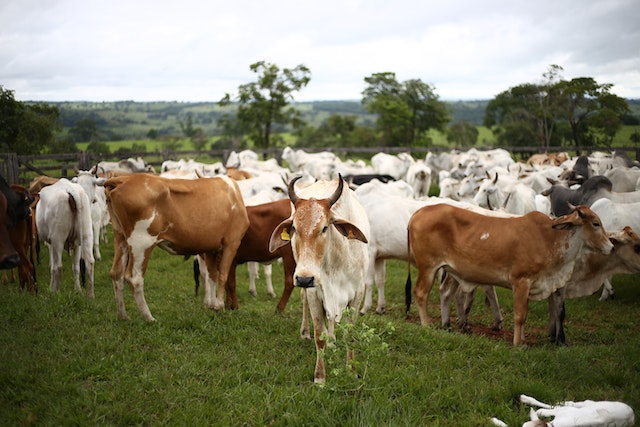Any farm, big or small, relies on healthy animals to be successful. In this blog post, we’ll tell you everything you need to know about keeping your furry (or not-so-furry) friends safe and sound.
From what they eat and drink to where they live and sleep, we’ve got all the bases covered. So sit back, relax, and get ready to learn how to take care of your newly-adopted pet goats!
Keeping the animals on your farm happy and healthy – How to do it
Farm animals are very different from the kinds of pets that most people are used to, such as dogs and cats. They require a lot of care and attention, but if you follow these guidelines, you’ll be sure to have healthy and happy animals on your farm in no time! Moreover, farm animals can often be subject to diseases that you might not be ready for, like metabolic diseases in cattle or even foot rot in sheep. So, always being on top of their health is crucial. Here are some tips on how to keep your farm animals healthy and happy:
Provide them with a clean and comfortable living environment
The first step to keeping your farm animals healthy is to provide them with a clean and comfortable living environment. This means making sure their housing is clean and dry, that they have plenty of fresh water to drink, and that they have access to clean food and hay. It also means providing them with enough space to move around and exercise. Moreover, you should make sure that their housing is well-ventilated to prevent the spread of diseases.
Give them the right food and water
Another important step in keeping your farm animals healthy is giving them the right food and water. This means feeding them a balanced diet of hay, grains, and other nutrients, and making sure they have access to clean water at all times. You should also avoid giving them food that is moldy or spoiled, as this can make them sick. On the other hand, you should also monitor their food intake to make sure they’re not overeating, as this can lead to obesity and other health problems.
Keep them up-to-date on vaccinations
Vaccinations are another important part of keeping your farm animals healthy. They help protect against diseases that can be deadly, such as rabies and foot-and-mouth disease. Make sure you keep up-to-date on all of the vaccinations that are recommended for the animals on your farm and administer them according to the schedule. While most vaccinations are given by injection, some can also be given orally. Furthermore, you should also consider getting your animals microchipped, as this can help them be returned to you if they ever get lost.
Regular check-ups by a veterinarian
One of the best ways to keep your farm animals healthy is to take them for regular check-ups by a veterinarian. This way, you will be able to find potential health problems early, which can help treat them properly and without serious consequences. Furthermore, your veterinarian can also give you advice on how to best care for your animals and keep them healthy. Most vets will also have a list of recommended vaccinations and other preventive care measures that you should take.
Take preventive measures against parasites
Parasites, such as ticks and fleas, can also be a problem for farm animals. They can cause problems ranging from skin irritation to serious diseases. To prevent parasites, you should regularly inspect your animals for signs of infestation and treat them with the appropriate products. You can also take measures to prevent parasites from entering your animal’s environment, such as using screens on doors and windows.
Monitor their health closely
This last tip is perhaps the most important one of all: monitor your farm animals’ health closely. This means checking them regularly for signs of illness, such as runny noses, coughing, or diarrhea. If you notice any of these signs, be sure to contact your veterinarian right away. They can help you determine if your animal is sick and, if so, what the best course of treatment is. More importantly, by monitoring their health closely, you can help prevent diseases from spreading to other animals on your farm.
There are many steps you can take to keep your farm animals healthy and happy. By providing them with a clean and comfortable living environment, giving them the right food and water, keeping them up-to-date on vaccinations, and taking them for regular check-ups by a veterinarian, you can help ensure that your animals stay healthy and happy for years to come. Furthermore, by monitoring their health closely and taking preventive measures against parasites, you can help reduce the spread of diseases and other health problems on your farm.
Related Posts: